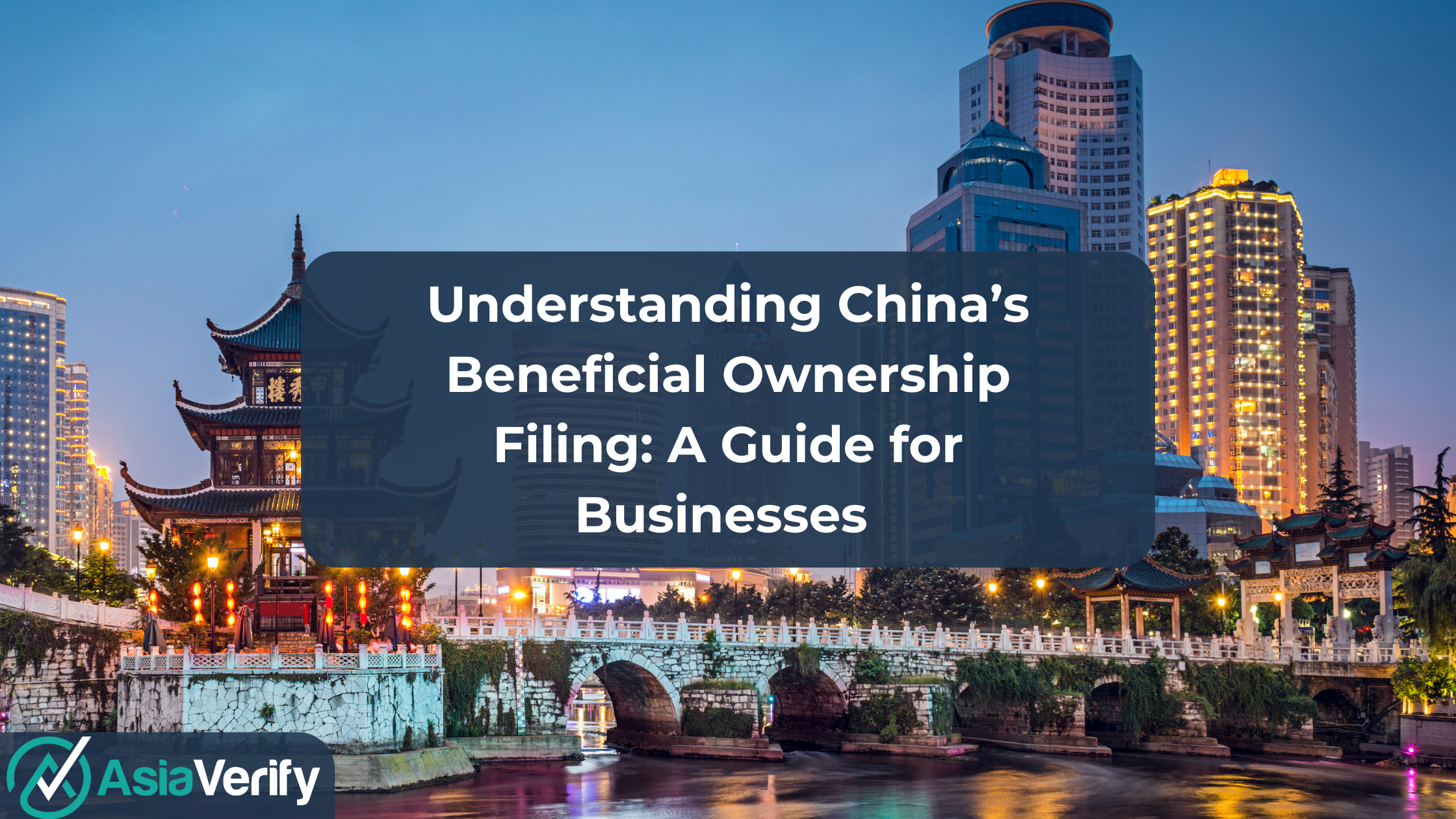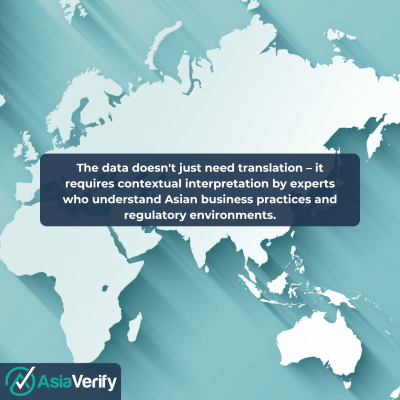As we enter 2025, businesses operating in China face new regulatory requirements that demand greater transparency and accountability. The Beneficial Owner Information (BOI) filing requirements, introduced in late 2024, take centre stage as companies work towards meeting compliance deadlines set for November 2025. These measures aim to combat financial crimes, such as money laundering and terrorism financing while fostering a more transparent business environment.
For foreign investors and businesses operating in China, understanding these new regulations is essential to ensure compliance and maintain smooth operations. This guide explores what the BOI requirements entail, why they matter, how businesses can meet these obligations, and who they affect.
What Are the BOI Filing Requirements?
The Administrative Measures on Beneficial Owner Information, which establish the BOI filing requirements, require businesses to disclose details about their beneficial owners. A beneficial owner is an individual with significant ownership or control over a business entity.
This can include:
- Direct or indirect ownership of 25% or more of equity, shares, or voting rights.
- Exercising actual control through decision-making authority or influence over significant assets.
- Receiving primary benefits from the entity’s operations.
Businesses formed after November 2024 must file this information within 30 days of incorporation, while existing entities have until November 2025 to comply. Small businesses with a registered capital under RMB 10 million, natural persons as shareholders, and no external control may qualify for exemptions, although they must confirm their exempt status with authorities.
Why Do These Rules Matter?
China’s BOI requirements reflect a broader global movement towards transparency, similar to regulations in the UK and US. While the measures aim to strengthen financial oversight, they also introduce additional compliance burdens, particularly for foreign-invested enterprises with complex ownership structures.
For multinational businesses, noncompliance can lead to penalties, including fines of up to RMB 50,000, delays in company registrations, and potential damage to credit standing. Moreover, overlapping requirements, such as those for “ultimate actual controllers” in China, add another layer of complexity. Understanding and fulfilling these distinct yet related obligations is crucial.
Accurate identification of beneficial owners is essential to meet these requirements, and delays or inaccuracies in filings could hinder operations, including incorporation and annual reporting processes.
How Can Businesses Ensure Compliance?
To meet the BOI filing requirements, businesses should adopt a structured approach:
Evaluate Obligations:
Determine whether your business falls within the scope of the new regulations. Businesses must carefully review their ownership structures to identify individuals meeting the definition of beneficial owners.
- Prepare Required Information:
Filing entities must provide detailed information, such as names, nationalities, and addresses of beneficial owners, alongside supporting documentation verifying ownership or control. - Monitor Changes and Update Records:
Filing entities must ensure their BOI remains current. Any changes in ownership or control must be reported within 30 days to remain compliant. - Implement Internal Policies:
Businesses should establish internal procedures to manage compliance, including processes to collect and verify ownership information, update filings promptly, and assign responsibility for regulatory adherence. - Leverage Reliable Data Sources:
Ensuring the accuracy of beneficial ownership information requires reliable, up-to-date data, particularly for entities with complex structures.
Who Do These Rules Affect?
The regulations apply to various entities in China, including companies, partnerships, and branches of foreign firms. Even foreign companies exempt from similar reporting obligations in their home jurisdictions must comply with China’s requirements if they operate locally.
The State Administration for Market Regulation (SAMR) and the People’s Bank of China (PBOC) jointly enforce these rules. While information is kept confidential and accessible only to authorised institutions, discrepancies in filings can still draw regulatory scrutiny, highlighting the importance of accuracy.
How AsiaVerify Can Help
Navigating China’s new regulatory requirements can feel overwhelming, particularly for foreign investors unfamiliar with the intricacies of the local business landscape. This is where AsiaVerify makes a meaningful difference.
As a trusted leader in business verification, AsiaVerify connects businesses to real-time, authoritative government data in China, ensuring precision and reliability at every step. A prime example is our collaboration with Birketts LLP, a prominent UK-based law firm.
Leveraging AsiaVerify’s platform, Birketts enhanced the accuracy and efficiency of beneficial ownership verification for their clients in China and Hong Kong. By providing instant, reliable insights into ownership structures, AsiaVerify enabled them to tackle complex regulatory challenges confidently.
With AsiaVerify’s solutions, businesses can:
- Accurately identify beneficial owners in complex ownership structures.
- Simplify and streamline the data collection process for BOI filings.
- Ensure filings remain updated and compliant, reducing the risk of penalties.
Thriving with China’s New Compliance Standards
China’s BOI filing requirements signal a transformative shift towards greater transparency and accountability. While they represent an opportunity for stronger regulatory compliance, they also introduce challenges for businesses, particularly foreign-invested enterprises.
To succeed in this environment, businesses must be proactive. Understanding their obligations, maintaining accurate records, and adapting to evolving requirements.
With AsiaVerify’s expertise and tools, compliance becomes less of a burden and more of an integrated process, freeing businesses to focus on growth and success with peace of mind.
Contact us for a free strategy call to learn how AsiaVerify can help your business stay ahead of regulatory changes in China.






